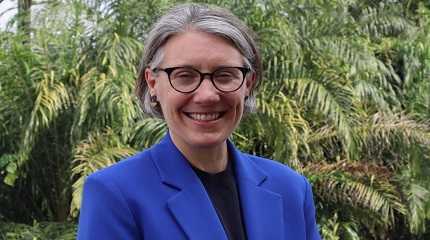
KUALA LUMPUR, Sept 29 (NNN-Bernama) — The United Kingdom (UK) will continue its collaboration with Malaysia to support the country’s ambition in making technical and vocational education and training (TVET) a key driver of economic prosperity.
British High Commissioner to Malaysia Ailsa Terry said the UK is dedicated to improving access to skills and education, ensuring the future readiness of the global workforce as well as encouraging social inclusivity and gender equality.
As the Skills for Prosperity Programme in Malaysia (SfP-Malaysia), run by the International Labour Organisation (ILO) and funded by the UK government, had concluded recently, the UK is looking for the next stage of cooperation with the Malaysian government on TVET, she said.
“Without really strong TVET, I don’t think Malaysia will succeed in its ambitions as the Prime Minister has recently said, so we want to support that as much as we can,” she said at a press conference after the closing event of the SfP-Malaysia, here Friday.
As the new British High Commissioner to Malaysia, Terry expressed her desire to ensure that all of the UK’s university campuses and schools in the country actively contribute towards the Malaysian government’s efforts in achieving its TVET goals.
“The UK already has five universities here in Malaysia. It’s the only country in the world where we have that many,” she said.
On the SfP programme, she said it has been delivered globally in nine countries since 2019 with the goal of understanding the future needs of education and skills and in ensuring that girls and women have equitable access to learning and were economically empowered.
Over 12,000 Malaysians, including students, workers, small- and medium-sized entrepreneurs, government officials, TVET institution staff and members of industry, academia, and other private sector organisations have benefited from the programme.
Meanwhile, ILO Deputy Regional Director for Asia and the Pacific Panudda Boonpala said the programme has bolstered the quality of TVET with a specific emphasis on promoting the integration of generic skills related to science, technology, engineering, and mathematics (STEM) into the TVET system.
It has also contributed to the development of the digital talent development roadmap and National Skills Registry, which are critical to facilitate the digital transformation of Malaysia TVET system and support anticipation and matching of future skills needs.
“We will continue to engage and bring all the technical expertise at the global and regional level to Malaysia and also vice versa. We draw a lot of experience from Malaysia to work in other countries as well,” she said.




